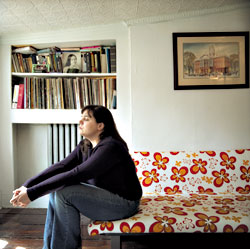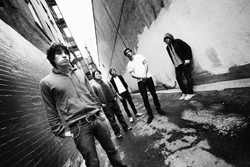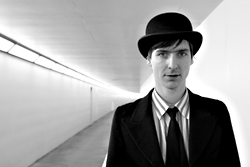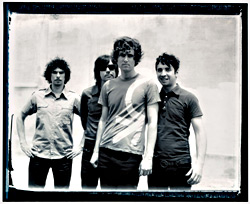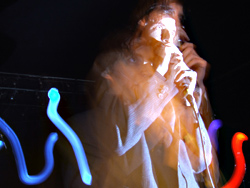Lots of what gets written about New York–based singer-songwriter Jennifer O’Connor revolves around O’Connor’s lyrical directness—the way she says in her tunes what she means, rather than something that’s somewhat like what she means. Here’s Sasha Frere-Jones in The New Yorker last month: “Her songs are plain and her presentation direct.” Here’s me in Spin last year: “[O’Connor] attacks relationship troubles with jangly thrift-shop guitars and lyrics that cut away the psychological doublespeak that prevents most coffeehouse crooners from actually saying anything.” And here’s a Brown University student named Ben Ewing, whom I found on the Internet by typing “Jennifer O’Connor” and “direct” into Google: “O’Connor’s work…and [Liz] Phair’s early songs are both direct and visceral.”
To see if O’Connor herself had an opinion on the directness of her music, I called her up the other morning at home in Brooklyn, where she was munching on a late breakfast of “hippie honey granola crap.” “I really like the new Shins record,” she said in a somewhat indirect manner between bites. “But I have no idea what the fuck [frontman James Mercer’s] talking about half the time. It doesn’t matter, though, because his melodies are so strong and his voice is so good and there’s kind of an undercurrent of feeling. And then there’s a line that will pop out at you that kind of makes you understand what the song is about.”
That’s not how O’Connor’s music works; in her songs, you pretty much understand exactly what the song is about from the beginning to the end. Lines pop out at you, but not because they provide a sudden burst of clarity; in fact, it’s often because they provide a sudden burst of poetry. In “Bullshit Maze,” the best cut on last year’s Over the Mountain, Across the Valley and Back to the Stars—O’Connor’s third full-length and her debut for Matador—she addresses an insensitive lover from whom she’s been uncharacteristically concealing her feelings. “You’re always asking what I think and what I thought and if it ever gets to be too much for me,” she sings. “Oh, yes, it does.” Later in the tune, she wonders to herself if she’s having any fun. Who hasn’t felt like that in a relationship that’s halfway through a slow slide from good to bad?
Given the willful economy of O’Connor’s lyrics, it seems reasonable to expect that she’d adopt a similarly stripped-down approach to her music. Not so. Sonically and stylistically anchored in the fertile sweet spot between alt-country twang and indie-pop jangle, Over the Mountain (which O’Connor produced herself in a few months at the beginning of 2006) is appealingly detail-rich, thanks in part to a generous cast of high-profile players that includes Yo La Tengo bassist James McNew, Spoon frontman Britt Daniel, erstwhile Sparklehorse guitarist Al Weatherhead, and keyboardist Kendall Meade, a fellow N.Y.C. singer-songwriter whom O’Connor calls one of her best friends. These enablers give O’Connor’s songs crucial color, providing the sort of real-world debris that makes her music feel so lifelike. (And when they excuse themselves, as in “Today,” a solo acoustic rumination on “desires that I can’t afford,” the contrast refocuses your attention on the singer, a little trick of dynamics many members of O’Connor’s indie-scene cohort would be wise to replicate.)
“In New York, a sense of community’s kind of an odd thing to think about,” O’Connor says of her ad hoc backing band. “But I guess I have developed a bit of a musical community. There’s a lot of musicians here, and I think in some way that’s probably why I wanted to come here: to be around it and get to see people who do it really well, and develop relationships with them and then get them to play on my record.” O’Connor laughs a little laugh that seems to say, Oops, too direct. “It wasn’t that calculated, I swear.”
